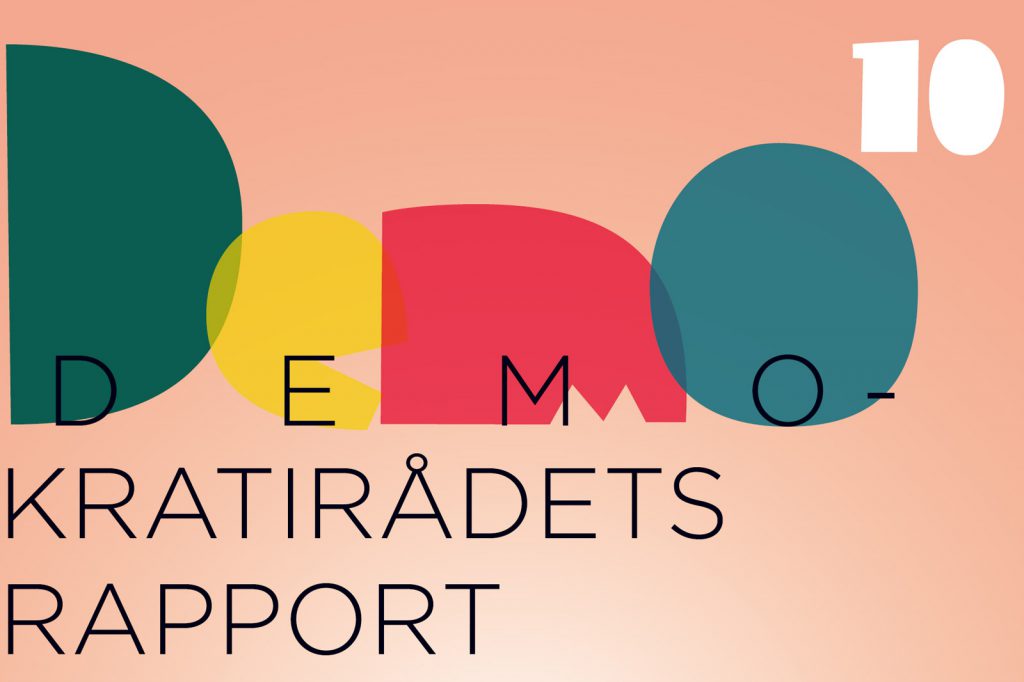Sweden has now been an EU member for about 15 years. According to the SNS Democracy Policy Council, there is still too much caution and too large a tendency to take an approach to the EU-membership as if it were a marginal change or a threat to defend oneself against. In this year’s report, ”The Europeanisation of Sweden”, the researchers present a reform package that would reinforce Swedish democracy and benefit the Swedish influence in the EU.
HOW HAS SWEDEN BEEN AFFECTED BY THE EU MEMBERSHIP? The report evaluates how Swedish policy and democracy have change due to the EU membership within mainly the following four areas: the constitution, the public administration, party politics and the welfare model.
MISLEADING CONSTITUTIONAL LAW. The report shows that the description of the relationship between Sweden and the EU in the constitutional law is becoming increasingly misleading and that the change that is expected to be made in the fall is not sufficient. The constitutional law provides a picture of Sweden having a larger control of the EU, its development and its consequences for the Swedish constitution than what is actually the case.
USE THE SWEDISH PARLIAMENT. Among other things, the council considers that the Swedish parliament should try to resume some of the power that it has lost in relation to the government, for example by using the new role obtained by national parliaments due to the Lisbon Treaty. The government has gained access to new political arenas, while the control function of parliament has become more difficult and its role in implementing EU regulations has been undermined due to changed legislative forms in the EU.
MORE POWER TO THE PRIME MINISTER. The requirements for EU coordination have supplied the Prime Minister and the Cabinet Office with increased power, at the expense of the ministries, in particular the Foreign Ministry. Civil servants at lower levels have also gained increased power and autonomy, due to their expert knowledge on EU issues.
LACK OF STRATEGIES. The council draws the conclusion that Sweden does currently suffer from a lack of reforms and strategies for meeting the effects of the membership on Swedish democracy and policy. This passiveness runs the risk of resulting in a self-inflicted lack of democracy in Sweden and an unused potential for influence in Brussels.
Researchers and Scientific Directors
The 2010 Democracy Council consists of JONAS TALLBERG (Chairman), Professor of Political Science at Stockholm University, NICHOLAS AYLOTT, Associate Professor and Lecturer in Political Science at Södertörn University, CARL FREDRIK BERGSTRÖM, Professor of EU Law at Uppsala University, JOAKIM PALME, Professor of Political Science at Uppsala University and Managing Director of the Institute for Future Studies and ÅSA CASULA VIFELL, PhD in Political Science and Researcher at the Department of Political Science at Stockholm University and The Institute of Contemporary History at Södertörn University.
